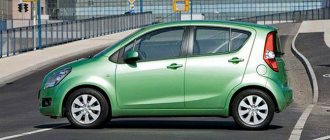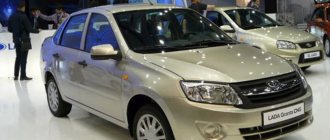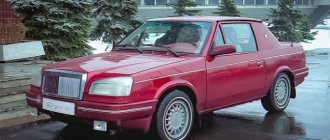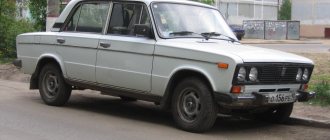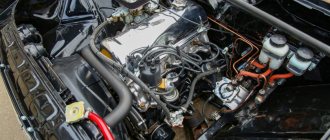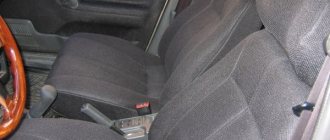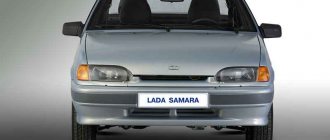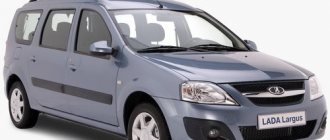Manufacturers of vehicles from Germany are considered one of the recognized standards of quality in the automotive market. The average person knows only the most famous brands of German cars, such as Mercedes, Volkswagen, Audi, but in fact there are many more of them, and they all have a very interesting history. It is proposed to consider in a few words all German car brands, to slightly lift the veil of secrecy over the automotive industry of a country so respected in its market segment.
- Aaglander
BRIEF BACKGROUND: HOW GERMANY STARTED PRODUCING CARS
The history of German car companies began at the moment when they began to produce high-quality vehicles, moreover, the characteristics of the cars were valued more than their appearance.
First of all, when producing German cars, companies relied on quality, strictly according to the principle “functionality is more important than form.” That is why Germany is considered the leader in car production in Europe and is included in the list of 5 countries producing high-quality cars.
Every year, German automobile companies produce about 6 million cars; with such indicators, German cars are deservedly called the most advanced.
Automobile production took off in a big way in 1870, when engineers Karl Benz and Nikolaus Otto figured out how to invent a four-stroke internal combustion engine. Thanks to him, Germany increased production to 1000 copies per year.
History of the development of the automotive industry in Germany
People know German car brands with badges and names thanks to the work of engineers of the past. The first attempts to create an internal combustion engine were made by the German engineer Augus Otto in the early 60s of the last century. At the same time, his colleague, Karl Benz, sought to replace the horse with some modern means. As a result, it was he who was able to equip an ordinary carriage with an engine. At the beginning of the 20th century, a plant was launched to produce this new product. In 1926, together with Gottlieb Daimler, Karl Benz managed to organize his own enterprise and begin producing cars under the Mercedes Benz brand. They are purchased by lovers of luxury and comfort all over the world, so now they are the most famous icons of German cars.
History of the development of the automotive industry in Germany
The activities of Adolf Hitler had a strong influence on the auto industry. During World War II, the country supported the development and production of mainly military equipment, and for ordinary people, factories began to produce compact and easy-to-use Beetles under the Volkswagen brand; they were called “people's cars.”
After the end of the war, the automobile industry experienced a decline, but at the end of the twentieth century, German cars regained popularity around the world. Now factories produce at least 12 million different models, and only half of them are assembled in Germany, and the rest are assembled outside the country.
AUDI – “THE TRUTH IN ENGINEERING”
Production: 1909 to present Headquarters: Ingolstadt, Germany Founders: August Horch Website: audi.com
History: The company was founded in 1909 in Ingolstadt, Bavaria. It is one of the most renowned companies engaged in the design, development, production, sales and distribution of machines. The company received its name in tribute to the memory of its founder, August Horch, translated from German horch means “listen”.
Later, in July 1909, the Audi Automobilwerke company (translated as “Audi Automobile Plant”) was organized. In 1932, Audi was merged with Horch, DKW and Wanderer to form a single company, Auto Union, hence the explanation for the unusual logo consisting of 4 rings. Since 1966, Audi has been part of the Volkswagen Group.
Statistics: Currently, the company's sales continue to grow. In 2013 they increased by 8%. The main distribution areas for Audi cars continue to be Eastern Europe, Africa and the Middle East.
Models: Audi sedan (A1-A8), Audi coupe and SUVs (SUV), S and RS
The most popular models are:
- Audi A8,
- Audi TT,
- Audi A3,
- Audi A6,
- Audi A1.
This list is formed based on sales. Most likely, fans of German cars know that in 2013 the top 5 best-selling Audi models consisted of the AUDI A3 and all SUV models.
Mercedes
Luxurious and chic cars of this company have been produced for more than a hundred years. The symbol is a three-rayed star, which shows success on land, water and sky. The company received its name in honor of the director’s daughter.
Mercedes is the most popular car brand; the German auto industry is mainly associated with it. The models include the following:
- A-Class. This is a small compact car, maneuverable and comfortable. Designed for city roads. Engine capacity up to 2 liters and power up to 192 hp. Body with five or three doors.
- B-Class. This brand is an improved version of the previous one. Produced since 2005. Despite the large size, the range of engines is similar.
- E-Class. One of the famous and popular models. The body is available in coupe, sedan and convertible form. Combines maximum comfort, power, reliability, style and beauty.
- S-Class. A special flagship brand of cars from this manufacturer. The name translates as “special”.
Statistics: The CLA-class has become the most popular and well-known model of modern Mercedes. For example, in 2013, 100 thousand units of these modifications were sold.
MERCEDES-BENZ
Production: 1926 to present Headquarters: Stuttgart, Germany Founders: Karl Benz and Gottlieb Daimler Website: mercedes-benz.com
The company that manufactures such famous luxury cars has maintained its fame for over a century. One cannot but agree that Mercedes-Benz is one of the oldest automobile companies still in existence. In the auto industry, Mercedes-Benz is known for its limousines, which are repeatedly featured in movies - after all, the company produces some of the best cars in the world.
Since its founding, Mercedes has led the market with cars that combine unique style and unique technology. Over time, the company began producing luxury cars, trucks, buses, limousines and trailers.
The list of Mercedes cars includes cars such as:
- passenger cars (CLA-Class, C-Class, GLK, R-Class, E-Class Wagon, CLS-Class, S-Class),
- luxury cars (CLA-Class, C-Class, E-Class, R-Class, E-Class Wagon, CLS-Class, S-Class Hybrid, S-Class, SL-Class, CL-Class),
- sports cars (SLK, SLS),
- SUVs/crossovers (GLK, M-Class, M-Class Hybrid, GL-Class, G-Class),
- trailers and minivans (Sprinter).
Luxury cars from Mercedes-Benz: limousines
The sophisticated world of cars was noticed thanks to the Mercedes-Benz 600, a luxury car that was produced in 2 different models: a sedan with a short wheelbase and 4 doors, a Pullman limousine with a long wheelbase and 4 doors, and also a limousine with 6 doors. Their production began in 1964. In 1972, 600 of these models appeared on the market.
Those who owned such a unique model of Mercedes-Benz car include::
- Coco Chanel,
- Hugh Hefner
- Elizabeth Taylor,
- John Lennon.
The most popular Mercedes sedan model is the Mercedes Benz CLA; since April 2013, it has brought the company sales of 100,000 units. They were in greatest demand in the USA, where about 27,000 cars were sold.
German car brands
German cars are impeccable quality, convenience and beauty. Emblems of German cars are found by people in all cities and countries. Nowadays both luxurious executive class models and inexpensive ones are produced. They are reliable and safe, regardless of cost and configuration.
New and improved models of cars and trucks, buses and trailers are constantly being released. They are very popular and people know German car brands and their badges and names.
German car brands
Manufacturers managed to gain worldwide recognition thanks to the release of many budget models. Despite their low cost, such cars are not inferior in quality to more expensive and luxurious vehicles.
BMW
Production: 1916 to present Headquarters: Munich, Bavaria Founders: Franz Joseph Popp Website: bmw.com/com/en/, www.bmwgroup.com
In German the name of this . The company's success lies in its focus on improving the engine. For a long time, engineers of many generations have been solving this issue. Much effort has been made to ensure that the company's name is associated with quality and excellence in execution.
In 1929, BMW began producing cars and has since been known for its cars and SUVs that can provide a great driving experience. The company produces passenger cars, luxury cars, sports cars, SUVs and pickup trucks.
Luxury cars from BMW
In May 2014, BMW achieved record sales. Thanks to this event, the company was recognized as a world leader in the production of luxury cars.
The top seller is the most popular BMW model - BMW X. It reflects all the requirements necessary for SUVs, which could not but give the company a positive result.
Volkswagen
The Volkswagen concern is the largest automaker in the world, as it owns several world-famous brands, including Bugatti, Bentley, Audi, Porsche, etc.
There are such a huge number of VW cars produced each year that it would be a mistake to hope that they are all made in Germany. Only produced in Germany:
- The car plant in Wolfsburg (the group's headquarters) produces the Golf, Golf Sportsvan, Golf GTE, e-Golf, Tiguan and Touran. Once upon a time, it was here that the first legendary “Beetle” rolled off the assembly line.
- The Passat, Passat Estate, and Arteon cars are produced in Emden.
- The Tiguan, T-Roc convertible,
- The T6 and Amarok models are produced in Hannover.
VOLKSWAGEN
Production: 1937 to present Headquarters: Wolfsburg, Germany Founders: Ferdinand Porsche Website: volkswagen.com, www.vw.com
In 1937, Ferdinand Porsche laid the foundations of the Volkswagen company. At that time, the company specialized only in luxury cars. It’s not for nothing that they say about this brand “a car for people”, because it is known that Volkswagen produces the best German cars. The company remains successful to this day and is on par with SEAT, Skoda, Rolls-Royce, Bentley, Lamborghini and Bugatti in terms of quality.
In Europe, in terms of price, the Volkswagen Golf is considered the most successful model among all others. Sales rose 28% in January, according to data from JATO Dynamics.
5. PORSCHE
Production: 1931 to present Headquarters: Stuttgart, Germany Founders: Ferdinand Porsche Website: porsche.com
Porsche is an active automobile company that specializes in the production of sedans, hypercars, supercars, SUVs and sports cars. This German car company earned a huge reputation for itself in the late 80s and early 90s, although it is no longer as popular today.
The most famous models include:
- 918,
- Macan,
- Cayenne,
- Cayman
- Boxter,
- Panamera.
All German car logos
Aaglander
It will be proposed to begin the review of all brands of German cars with the Aaglander company. Production is focused on the production of convertibles that are simply luxurious in their characteristics, specially stylized in a retro style. The concern itself was founded relatively recently, by the standards of the automotive industry, in 1993. The founder of such a unique idea was the quite successful German businessman R. Beals, who decided to realize his vision of producing luxury cars, settling in the small town of Kuhlenfels.
AVT
Further, the brands of German cars are no less successfully complemented by the famous ABT company in Germany, which amazes with its specialization. The company is engaged in high-quality and completely original tuning of vehicles, primarily racing and sports. The main focus of the enterprise is to work with all subsidiaries of the company Volkswagen AG, which is incredibly popular both in Germany and throughout the world. It is worth noting that the ABT brand is positioned as a completely successful racing team, whose representatives proudly display the name of their main sponsor and patron on the tracks. It specializes primarily in the modernization and modification of chassis components and assemblies of sports cars, high-quality tuning of electronics, and ensuring aerodynamic characteristics. The company’s rather interesting and simple logo stands out, a stylized image of the abbreviation “AVT”.
Alpina
German car brands sometimes surprise and reveal a lot of new things to potential consumers. This also applies to the manufacturer Alpina, whose specialty is the creation of luxury cars that are impressive in their parameters and style. What is noteworthy is that production is carried out based on the products of the popular automotive giant BMW, exclusively to order. Both the company's plant itself and the headquarters, which carries out all management, are located in the town of Buschloe. Among luxury car manufacturers in the country, this is, without exaggeration, the oldest brand, founded back in 1964, only three years later, after which it received its own brand name. B. Bovinsipen can rightfully be considered the founder, who made every effort to ensure that this automobile brand became easily recognizable on the streets of all European and world capitals without exception.
Amphicar
The products presented on the market by another brand of German cars, Amphicar, can be called somewhat surprising and somewhat paradoxical. In fact, this is a unique floating car of its kind, designed for four seats and mass-produced. By the way, the Amphicar was the first and only amphibious vehicle in Germany that went into mass production and sale to ordinary citizens. True, native Germans rarely had the opportunity to try all its capabilities and quality characteristics in practice, since the bulk of the production (about 3,878 vehicles were produced in total) were sold to dealers from the USA. Nevertheless, the success and popularity of this vehicle, as well as its creators, is still remembered by ordinary vehicle lovers from Germany. The company logo is a stylistic representation of the name.
Artega
Perhaps the youngest German car brand is Artega. In addition, this is not just a young company, but one might say, the most “unlucky”. Production was founded in 2006 and after 6 years, in 2012 it was subject to closure, since, according to the official version, the technologies used by the engineers were in fact too advanced for their time and the society towards which the concern’s cars were oriented. After an unsuccessful start in the automotive industry, the company was bought by an already well-known manufacturer - the giant Volkswagen. All technical developments previously patented as part of the company’s production were introduced into prototypes of future production cars, which the world will see in 2022.
Audi
There are truly very few people in this world who do not know about the products of such a revered brand as Audi. Considering existing or previously existing brands of German cars, it was simply impossible not to include the concern in this list. The company specializes in the production of vehicles in the business and luxury segments; it also produces crossovers and sports cars. The products are distinguished by the highest level of quality, elaboration of various elements, as well as the creation of the most impressive design solutions, which allows you to recognize Audi cars right on the street.
Barkas
In fact, the Barkas company positions itself as the heir to the once communist Germany, which ceased to exist due to the unification of the state into a single whole. It existed in the period 1961-1991 and specialized in the production of comfortable buses in the GDR. In particular, the B1000 model vans, as well as various trucks and special vehicles designed directly on their basis, were highly valued and popular among potential consumers.
Bavaria
The Bavaria concern, founded in 1997, can be called a kind of technical breakthrough in the market of special-purpose vehicles in Germany. During the same period, the main direction of activity of this brand of German cars was finally approved, namely, the production of high-quality and original motorhomes. After some time, the production of vans was launched, performing a variety of production tasks. Surprisingly, the company’s products are completely unified; for example, the same vans, if necessary, can easily be re-equipped for completely different needs.
BMW
Not only in Germany, but throughout the world, the products of the famous automobile brand BMW, which at one time modestly began its activity in creating aircraft engines, became famous. The history of this concern goes back about 100 years, but the final version of the emblem was created in 1920 and remains virtually unchanged today. What is noteworthy is that the company’s products are famous and popular both among ordinary citizens and wealthier segments of the population.
There is a wide assortment of the model range, its prompt updating and flexible pricing policy. What is noteworthy is that the company has a number of representative offices and subsidiaries in different regions of the planet.
Brennabor
One of the oldest car manufacturers in its segment, Brennabor existed in the period 1871-1945, when it managed to release many unique creations. In addition to cars, until the mid-1930s it positioned itself as one of the popular and respected manufacturers of strollers and bicycles in its class not only in Germany, but also in Europe.
Daimler
Another once popular vehicle manufacturer in Germany is the Daimler concern. It produced its first car in 1896, but only half a century passed, after which the company sold its shares and now belongs to the no less popular Jaguar concern. The logo also looks simple and concise, in the form of a name made in stylized “metal style” letters.
DKW
One of the manufacturers that occupied a small niche (in terms of production volume) in the German automotive industry and was little known outside of it was DKW. The German car brand was registered in 1916 and ceased to exist about half a century later, in 1966, without achieving worldwide recognition. The main activity of the company was the production of passenger cars, as well as motorcycles, which today remain only in collections and private museums.
Gemballa
The Gemballa company specializes in providing high-quality car tuning in all respects, and also produces individual models. The concern was registered in the city of Leonberg, the main activity is to increase the power characteristics of the products of another concern - Porsche, as well as the creation of unique business and luxury class vehicles created on its basis. Since 2012, the products have been based on the engineering developments of another popular “sports” concern McLaren.
Goliath
Another automobile concern that has already become a thing of the past is Goliath. It existed on the German market in the period 1928-1959, after which it ceased operations. High-quality passenger cars, as well as quite spacious trucks, rolled off the assembly line. A unique line of the concern can be called the production of vehicles with a three-wheeled base, which were aimed purely at the budget segment of the market. The logo was a stylized company name, made in gold.
Gumpert Apollo
One of the most popular German car manufacturers today “among the enlightened” is the company Gumpert Apollo. The company was founded in 2012, and today produces expensive and equally high-quality sports cars.
Horch
The once popular, but today almost forgotten Horch concern has long been considered the privilege of aristocrats not only in Germany, but also in the entire civilized world. The concern was at the peak of its popularity in the period 1930-1940, when it was customary to see it in the garages of famous entrepreneurs and prominent political figures. A stylized image of the first letter of the name, as well as the surname of the founder, was chosen as the logo. Currently, these cars are not actually produced, since their era is long gone. However, the products of the once majestic concern are popular among collectors and can be found in museums.
Share
ADAM OPEL AG
Production: 1862 to present Headquarters: Rüsselsheim, Hesse, Germany Founders: Adam Opel Website: opel.com
Opel AG has been in the automotive business for over 153 years. Initially, it was engaged in the production of bicycles. But, having paid attention to the creation of the first car, Opel AG switched its attention to cars, and the first model was released in 1899. Undoubtedly, you may have noticed how gangsters and the mafia drive around in Opel cars in movies.
ALPINA
Production: 1965 to present Headquarters: Buchlohe, Germany Founders: BMW Website: alpina-automobiles.com
Alpina is another German automobile company that started its journey in 1965. Although the company is not particularly popular, it still continues to work and collaborate with BMW in the production of its cars. Thanks to this, Alpina is still in demand in some areas of Germany.
The German automobile industry today
As of 2022, the German automotive industry ranks 3rd in the world in terms of production volumes, behind Japan and the USA. But in terms of equipment exports, Germany is in 2nd place, behind only Japan. German companies are actively entering new markets and launching assembly plants in other countries. For example, joint ventures are being established in China (supplies are expected to increase by 2% in 2022).
German industry ranks third in the world.
BITTER CARS
Production: 1971 to present Headquarters: Schwelm, Germany Founders: Erich Bitter Website: bittercars.com
Founded by Erich Bitter, who was a former racing driver, Erich Bitter Automobil GmbH (Bitter) has distinguished itself as a manufacturer of German sports cars and luxury cars. The company was not destined to become very popular, but it is one of those that still produces unique sports cars.
Advantages of German cars
The German auto industry is famous for its strengths.
Quality
Painstaking work is carried out with all suppliers. For example, numerous tests are carried out on metal products. Plastic interior parts (especially buttons and levers) are tested for resistance to hand creams that many people use.
The requirements are very high, and if a third-party company cannot provide the required parameters, its services are immediately abandoned and a replacement is found.
Particular attention is paid to build quality
Technical development
When buying a car developed in Germany, you can be sure that there are no trifles for the designers there. Highly qualified specialists worked on each key so that it was pressed with a certain force, so that it was convenient for a person to reach it with his hand, so that in the event of an accident, the plastic from which this key is made would not form sharp fragments. And exactly the same - with absolutely all the details, without exception. It is from such “little things” that a person creates the feeling of a comfortable and pleasant car. Moreover, there is a special talent - when it comes to a obviously budget car - the designers are squeezed into the framework of low cost, but are obliged to make sure that the convenience is maximum. Yes, we have to simplify some elements - in some places the plastic may be a little simpler, in others they leave the head of a bolt on display or make a recess instead of a handle. But even inexpensive cars remain real “Germans”.
Service
The interaction between the client and the manufacturer does not end at the moment of purchase. Repairs and maintenance must also be carried out to the highest standard. And all refusals of warranty repairs, if any, must be strictly justified. Very serious work is being done for this. The warranty conditions themselves for any brand of German-made car are also very loyal compared to many competitors, whose rules can contain many exceptions.
GUMPERT
Production: 2004 to present Headquarters: Altenburg, Thuringia, Germany Founders: Roland Gumpert Website: gumpert.de
Gumpert is another car company that has been around for a while; It cannot boast of fame similar to Volkswagen, BMW and Audi. Gumpert mainly specializes in the production of supercars, the most famous model being the Apollo Racecar.
ISDERA
Production: 1969 to present Headquarters: Hildesheim, Germany Founders: Eberhard Schulz Website: isdera.de
Isdera is one of the few private automobile companies whose full name is “Ingenieurburo fur Styling, Design und Racing.” The company mainly produces sports cars, and a team of craftsmen is responsible for this. One such car even appeared in the beloved computer game Need for Speed II, released in 1997.
KEINATH
Production: 1983 to present Headquarters: Reutlingen, Germany Founders: Horst Keinath Website: unavailable
Many German auto companies specialize in the production of sports and racing cars, as well as luxury cars. Keinath has been focused exclusively on racing cars since 1983. It began producing cars with the popular Opel Monza and then continued in the same spirit with the GTR, which was praised for its sporty style and incredible power.
ADLER
Production: 1900 to 1957 Headquarters: non-existent Founders: Heinrich Kleier Website: unavailable
Adler is one of those German car companies that were popular in the early 1900s. This company successfully produced about 30 cars, each of which was unique in its own way. In addition to cars, the company also manufactured typewriters, bicycles and motorcycles.
AUTO UNION AG
Production: 1932 to 1966 Headquarters: Chemnitz (1932 - 1948), Ingolstadt (1949 - 1968), Ingolstadt/current Audi AG headquarters (1985 - present) ) Founders: no Website: unavailable
Will you be stunned by the fact that Audi owes its logo to the Auto Union concern? Probably yes! In the early 1930s Auto Union was a successful manufacturer of popular cars, but later competition came from Volkswagen, and Auto Union transformed into Audi.
German car manufacturers
Large manufacturers
Unlike brands, some of which may produce products in the same plant, there are slightly fewer German car manufacturers. For example, modern large German car companies: Audi, BMW, Opel, Volkswagen, Mercedes-Benz, Porsche. True, almost all of the above manufacturers have a number of brands, let’s say, that are not characteristic of their name, and are produced not under the auspices of Germany, but in various countries of the world. However, these are established players in the car market not only in their region, but also far beyond its borders. It is thanks to these companies that German car brands are considered the best in the world.
Small producers
However, there is also a German car manufacturer with a rather modest annual production volume. As a rule, these are factories and companies specializing in the production of relatively expensive models and types of vehicles that come out of hand-assembled workshops in small batches. For example, these are such German car brands as the same Maybach, or the relatively recently created Wiesmann, Gumpert.
Liquidated producers
Just as there are defunct German car brands, so you can also find manufacturers that have left the industry. The reasons are sometimes the most banal - the lack of competitive models, the high cost of cars, the weak technical component, the influence of economic factors.
For example, Barkas produced no passenger vehicles; as a result of its weak market position, the popular manufacturer ended its existence in obscurity. True, its products can still be found on the streets - buses are incredibly popular among fans of retro-style vehicles, but that's how the German car brand Barkas ceased to exist anyway. This also includes the DKW concern, the technical component of whose cars was weak and sales of motorcycles were insignificant. As a result, the company simply left the market, opening the way for young and promising companies.
Interesting logos of car manufacturers in Germany
No less than the number of brands and manufacturers of automobiles in Germany, the history of their logos is striking. For example, the Aaglander brand logo looks stylish and practical. It evokes the shades of the layers of high society, the shield decorated with a crown looks simply perfect, peculiarly reminiscent of a noble coat of arms. By the way, the Alpina company has a very attractive logo, with automotive parts located in it, as a tribute to the industry in which the concern itself operates.
The Audi logo has a unique history, because few people realize that it symbolizes the merger of four other manufacturing companies that formed this concern in 1934. When these companies were merged, the original logo concept was to combine them, but the owners of the concern accepted the fact that the design of four combined logos looked bulky and irrational and simply decided to replace it with four rings.
The Gumpert Apollo logo features an image of a griffin, a mythological creature that seems to convey the very atmosphere in which the manufacturer directly works. The Gembalia company logo uses a regular shield, on which the name of the company is written in stylized letters, as well as its relationship to vehicle tuning. The Brennabor logo looks somewhat interesting, namely, a stylized image of the capital letter “B” on the original background.
DKW
Production: 1928 to 1966 Headquarters: Saxony, Germany Founders: Jorgen Skafte Rasmussen Website: unavailable
And again an amazing fact! As you can see from the picture, DKW was a separate car company before it merged with Auto Union AG. Before this, the company introduced the first steam engine in 1919, and after the merger, it produced its last machine in 1966. In addition to cars, DKW also produced motorcycles.
BORGWARD
Production: 1929 to 1961 Headquarters: Bremen, Germany Founders: Karl Borgward Website: unavailable
At the end of the 30s In the 20th century, Borgward was considered one of the most popular automobile companies. It was founded in Bremen and enjoyed great success for a long time.
Before bankruptcy, Borgward was engaged in the production of cars of 4 different models:
- Lloyd
- Goliath
- Hansa,
- Bogward.
EISENACHER MOTORENWERK (EMW)
Production: 1945 to 1956 Headquarters: Eisenach, Germany Founders: unknown Website: unavailable
Eisenacher Motorenwerk (more commonly abbreviated EMW) is a former East German automobile company. The headquarters were located in Eisenach, and the company itself was quite popular in the 50s. 20th century, as it produced sports cars and cars for Formula 1. The company was closed due to bankruptcy.
Source
